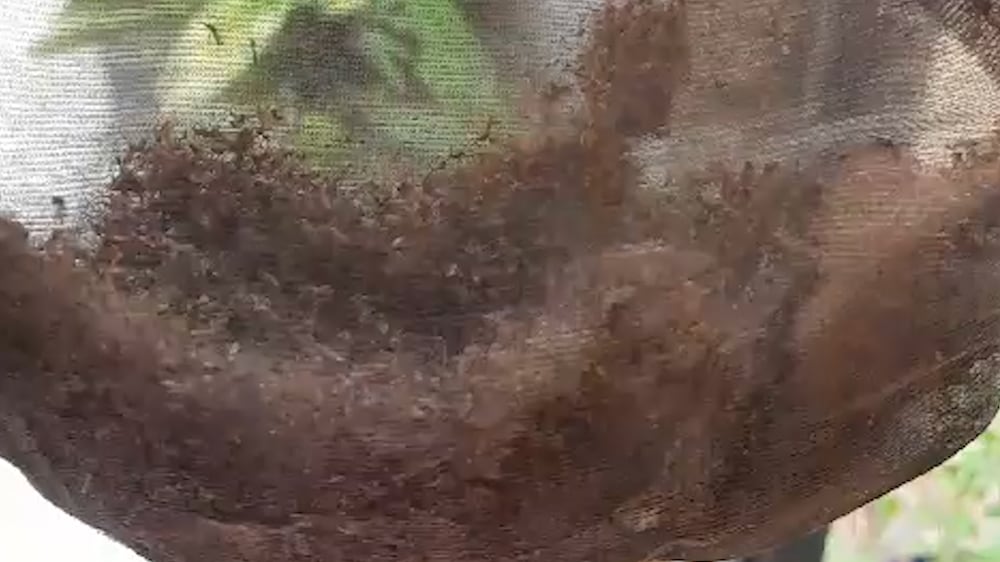Emergency teams have stepped up measures to control mosquito populations in UAE hotspots to limit the spread of diseases the insects carry.
Standing water and collection areas remain after two recent storms that caused widespread flooding and disruption across the country.
Recovery teams have been working almost continuously since then to remove floodwater, pumping it away from residential areas.
The third phase of the UAE’s anti-mosquito campaign is now under way, led by the Ministry of Climate Change and Environment in partnership with the National Emergency, Crisis and Disaster Management Authority.
Thousands of mosquito traps placed across the UAE

Working alongside municipalities and other government departments, the authority is increasing thermal fogging to kill-off mosquitoes and their larva, as well as pumping out water from flooded-areas.
“Efforts to combat mosquitoes represent one of our most important goals during this period,” said Alia Al Harmoudi, assistant undersecretary for the sustainable communities sector at the ministry, in a social media post.
“The ministry will work during the coming period to provide all information, guidance, and means of support to the community and help limit the spread of mosquitoes.”
The ministry said the mosquito control campaign was being intensified following high levels of rainfall, which it said contributes to an increase in “the spread of mosquitoes in water pools and wet places”.

The UAE experienced its largest single day of rainfall since records began in 1949 on Tuesday, April 16.
Data from the National Centre of Meteorology showed a 254mm of rain fell in one area of Al Ain alone in a 24-hour period – the equivalent of about two years' worth of average rainfall in the UAE.
The country was hit by more heavy rain and thunderstorms on Thursday, though the adverse weather was less severe than that felt last month.
UAE hit by heavy rain – in pictures
In recent months, hospitals in Dubai have reported an increase in cases of dengue fever, a disease transmitted by mosquitoes.
While cases remain rare, the most common symptoms are a high fever of 39ºC to 40ºC, severe headaches, joint and muscle pain, nausea, vomiting, mild nosebleeds and a skin rash.
Pregnant women, the young and elderly, or those with existing health problems, are more likely to suffer worse symptoms.
Pest controllers prevent the spread of mosquitoes by eliminating breeding sources, such as stagnant water and by installing smart-traps in communities that draw mosquitoes in by using CO2 and a chemical that replicates human scent.
Muhammad Manqoosh, MD from Nagina Cleaning & Pest Control LLC, said the number of call-outs for mosquito problems had increased considerably.
“There has been a rise in mosquito complaints over the last five days,” he said.
“There is a regular requirement of thermal fogging, but the biggest change has been an increase in our services from commercial clients, such as in warehouses, factories and offices, as well as the villa communities.”



































